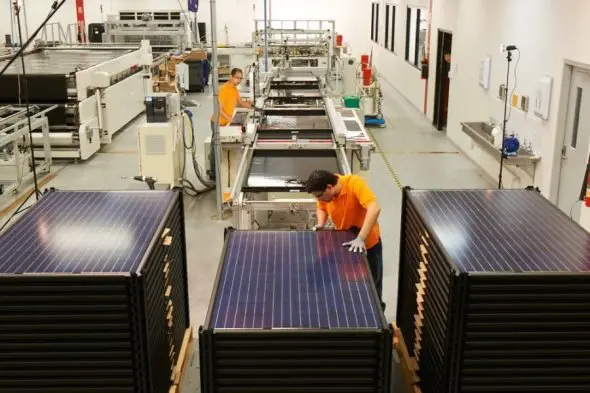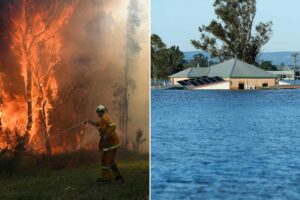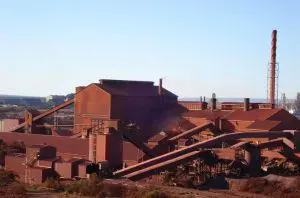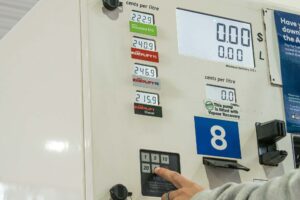The Bloomberg NEF report for Australia released this week says that Australia needs to scale up its emission reductions targets, suggesting we should aim for a 71 per cent reduction from 2005 levels by 2035.
It also makes clear that the investment and spending needed to make this happen must treble, from a record $18 billion in 2023 to around $55 billion a year now, and to $83 billion in the 2030s.
These are big numbers, and no one thinks this will be easy. But none of the energy system changes we need will happen without significant investment and policy improvements and incentives from the Australian government to give confidence to private investors.
It’s good to see the Greens clarifying their position on where their negotiation focus will be on the Future Made in Australia (FMiA) legislative package currently before the parliament. Its passage is crucial to the investment needed to fast-track our energy shift and build our place in the global decarbonised economy.
There’s no doubt that effective structures are needed to ensure transparency and accountability for that public investment; performance targets to measure success – and possibly failure so we can learn from any missteps; and time limits on incentives to ensure companies are not propped up.
The government has acknowledged this on several occasions.
We continue to hear that “market rules” should drive investment. That “picking winners” will lead to disaster.
However, where policies to support decarbonisation have been enacted in other economies, this has not been the case. The rest of the world is well ahead in investing in the energy transformation and reducing emissions from manufacturing.
In the US, the Climate Bill (the Inflation Reduction Act) has seen an injection of $US300 billion in Deficit Reduction and $US369 billion in Energy Security and Climate Change programs over 10 years, which is already driving as much as $US3 trillion in private investment on decarbonising according to Goldman Sachs. The situation in the EU, Korea and Japan, not to mention China, is similar.
Australia must move at speed and scale to make the most of the opportunities through our vast and affordable renewable energy resources and enviable wealth of rare earth minerals. Moving now, and making improvements as we go, gives us the best chance of achieving our climate and economic goals.
We must ensure climate actions have accountability, transparency and expert advice at the heart of government policy making. We have the best expertise available through our research community and through the offices of the Chief Scientist and the Chief Economist, as well as the National Science and Technology Council.
There is also expertise from the science, engineering and economics communities: the Fellows of the Australian Academy of Science and the Academy of Technological Sciences (ATSE) and the Academy of Social Sciences.
There are existing models for delivering financial outcomes and accountability in both the Clean Energy Finance Corporation (CEFC) and ARENA – two government vehicles driving investment in low carbon solutions – both with independent boards and stringent reporting requirements. Each of these two highly successful bodies will be key to decisions on the FMiA package.
It seems reasonable to expect that accountability on how taxpayer money is spent – the who, how and why decisions on a project are made – should be baked in from the start. Tony Wood of the Grattan Institute was recently quoted in a similar vein “…it was crucial that guardrails were put in place to force the responsible minister to act on advice from his department and experts.”
If a minister makes a decision that contradicts expert advice, they should have to explain why.
There is also a need for better explanation on how sectoral assessments would work, along with commitment to reporting financial, employment and environmental benefits of public investments annually, including reasons for success or delays, and in some cases, failures.
With next to zero domestic stockpiles of diesel and oil onshore and increasing global supply chain challenges, Australia’s national security is best served by building up local supply chains and renewable energy and non-fossil fueled transport while ensuring that decarbonised products have the right price signal in both local and international markets.
We must do all we can to ensure government policy and spending deliver the outcomes the FMiA legislation aims to achieve, and not let the perfect get in the way of the very good. Let’s start with the FMiA, taking a strong first step towards our own clean energy shift.
The community is watching; the 2022 election saw an unprecedented number of community independents elected with a strong climate focus, so surely the parliament understands that the window is closing on the need to get this right economically and structurally to build a robust future economy.
Blair Palese is founder of Climate Capital Forum which brings together leading thinkers and key policy makers to address critical issues on decarbonisation and support efforts at all levels of government to build a strong future economy.








